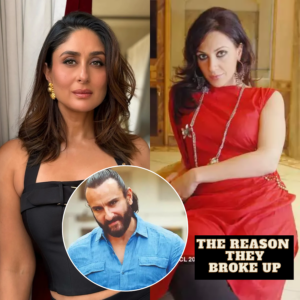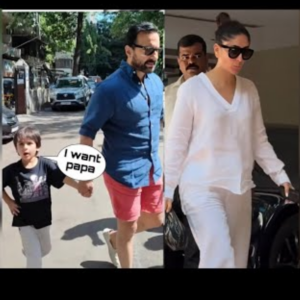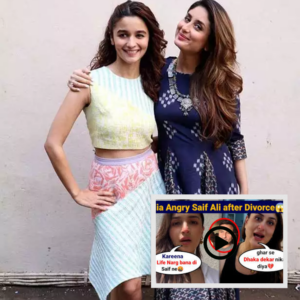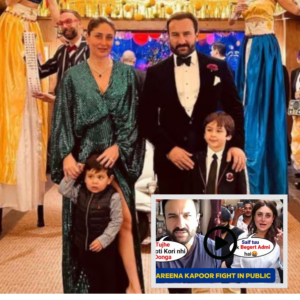In an era where the conversation around ageism in the entertainment industry has gained considerable momentum, the recent scrutiny directed towards Aishwarya Rai Bachchan, one of Bollywood’s most iconic figures, raises pertinent questions about societal attitudes towards aging and women in the public eye.
Aishwarya Rai Bachchan, often hailed as one of the most beautiful women in the world, has been a prominent figure in Indian cinema for over two decades. From winning the Miss World pageant in 1994 to carving a successful acting career both in India and internationally, she has garnered widespread acclaim for her talent and grace. However, as she continues to navigate the spotlight well into her forties, she has become a target of age-shaming, sparking debates about the unfair standards imposed on women as they grow older.
The phenomenon of age-shaming is not unique to Aishwarya Rai Bachchan; it is a pervasive issue faced by women across various industries, where their worth is often unfairly judged based on their age and appearance. In the case of Aishwarya, critics have scrutinized her physical appearance, suggesting that she does not meet the unrealistic standards of youth and beauty perpetuated by society and the media. This scrutiny not only diminishes her accomplishments but also reinforces harmful stereotypes about aging, perpetuating the idea that women lose value as they grow older.
What is particularly troubling about the age-shaming directed towards Aishwarya Rai Bachchan is the double standard it reflects within the entertainment industry. Male actors are often celebrated and revered well into their later years, while their female counterparts are subjected to scrutiny and criticism for the natural process of aging. This disparity underscores the deeply ingrained gender biases that persist in society, where women are expected to defy the aging process while men are allowed to age gracefully without facing the same level of scrutiny.
Moreover, the age-shaming of Aishwarya Rai Bachchan highlights the unrealistic beauty standards that prevail in the entertainment industry, perpetuating the notion that youth and beauty are synonymous with worth and success. This narrow definition of beauty not only excludes individuals who do not conform to traditional standards but also contributes to the marginalization of women as they age, reinforcing the idea that their value is contingent upon their physical appearance.
However, amidst the criticism and age-shaming, Aishwarya Rai Bachchan remains a symbol of resilience and grace. Instead of succumbing to societal pressure, she continues to defy stereotypes and challenge perceptions about aging in the entertainment industry. Her refusal to conform to arbitrary standards of beauty serves as a powerful reminder that worth is not determined by age or appearance but by talent, integrity, and character.
In response to the age-shaming, many fans and supporters have rallied behind Aishwarya Rai Bachchan, expressing admiration for her grace and dignity in the face of adversity. This outpouring of support not only reflects the public’s rejection of ageist attitudes but also signals a growing movement towards inclusivity and acceptance of individuals of all ages.
In conclusion, the age-shaming directed towards Aishwarya Rai Bachchan is indicative of broader societal attitudes towards aging and women in the public eye. By scrutinizing her appearance and diminishing her accomplishments based on her age, critics perpetuate harmful stereotypes and reinforce unrealistic beauty standards. However, Aishwarya’s resilience in the face of adversity serves as a powerful reminder that worth is not determined by age or appearance, but by talent, integrity, and character. As society continues to challenge ageist attitudes, it is imperative that we celebrate individuals of all ages and reject the notion that youth and beauty are prerequisites for success and worth.
News
Kareena Kapoor, Saif Ali Khan with Jeh and Taimur jet off for next summer holiday in casual airport looks: Watch
Kareena Kapoor, Saif Ali Khan, and their two sons, Taimur and Jeh, took off for their next summer holiday, dressed in casual airport looks. See what they…
Saif Ali Khan Was Dating Italian GF, Rosa Catalano Before Marrying Kareena, Here’s Why They Broke Up
Saif Ali Khan was head over heels in love with Italian model, Rosa Catalano, after his divorce from Amrita Singh. Here’s everything you need to know about…
Kareena Kapoor Saif with Taimur and jeh Ali khan at airport avoiding each other after divorce news
Kareena Kapoor, Saif Ali Khan Twin In White, Get Papped With Sons Taimur And Jeh At Airport; Kareena Kapoor, Saif Ali Khan spotted with kids at airport…
Alia Bhatt First Reaction & Criticized Saif Ali Khan after divorce with Nanand Kareena Kapoor
Kareena Kapoor has a cute compliment for ‘bhabhi’ Alia Bhatt: ‘She looks like a…’ Talking about Alia Bhatt, Kareena Kapoor associated her with a rose ‘because it’s…
Kareena Kapoor Jealous With Saif Ali Khan And Reveal Big secret About Saif Ali Khan After Divorce
‘Kareena Kapoor, Saif Ali Khan insist Taimur picks after him, doesn’t waste food’: Jaideep Ahlawat calls starkid ‘inquisitive, smart’ Jaideep Ahlawat said Kareena Kapoor and Saif Ali…
Kareena Kapoor Shocking Statement after leaving Saif Ali Khan House amid DIVORCE news
Kareena Kapoor Khan Shares Romantic Pictures After Saif Changed His Tattoo, Starting Divorce Rumours Kareena Kapoor Khan posted a couple of romantic photos with Saif Ali Khan…
End of content
No more pages to load











